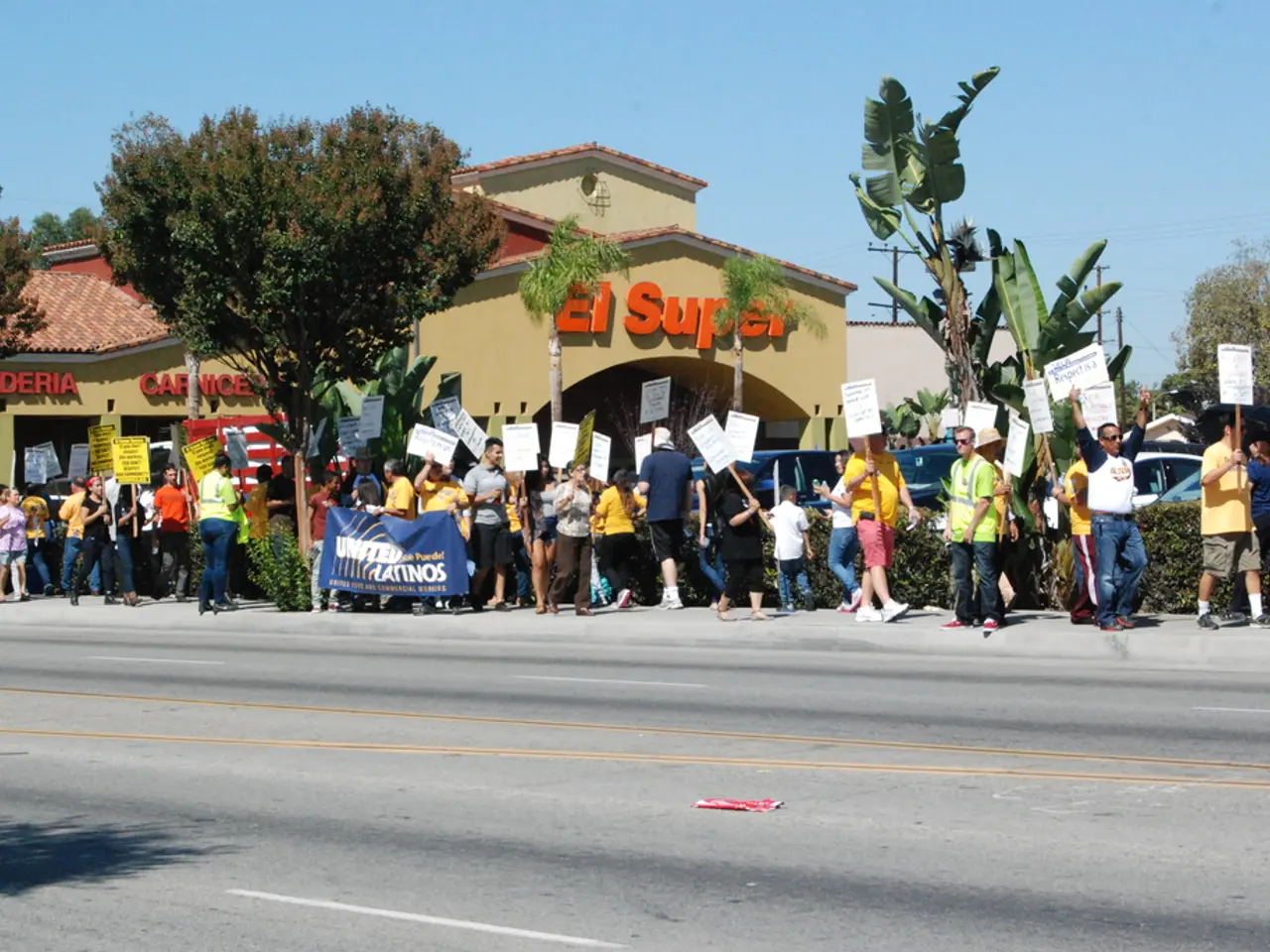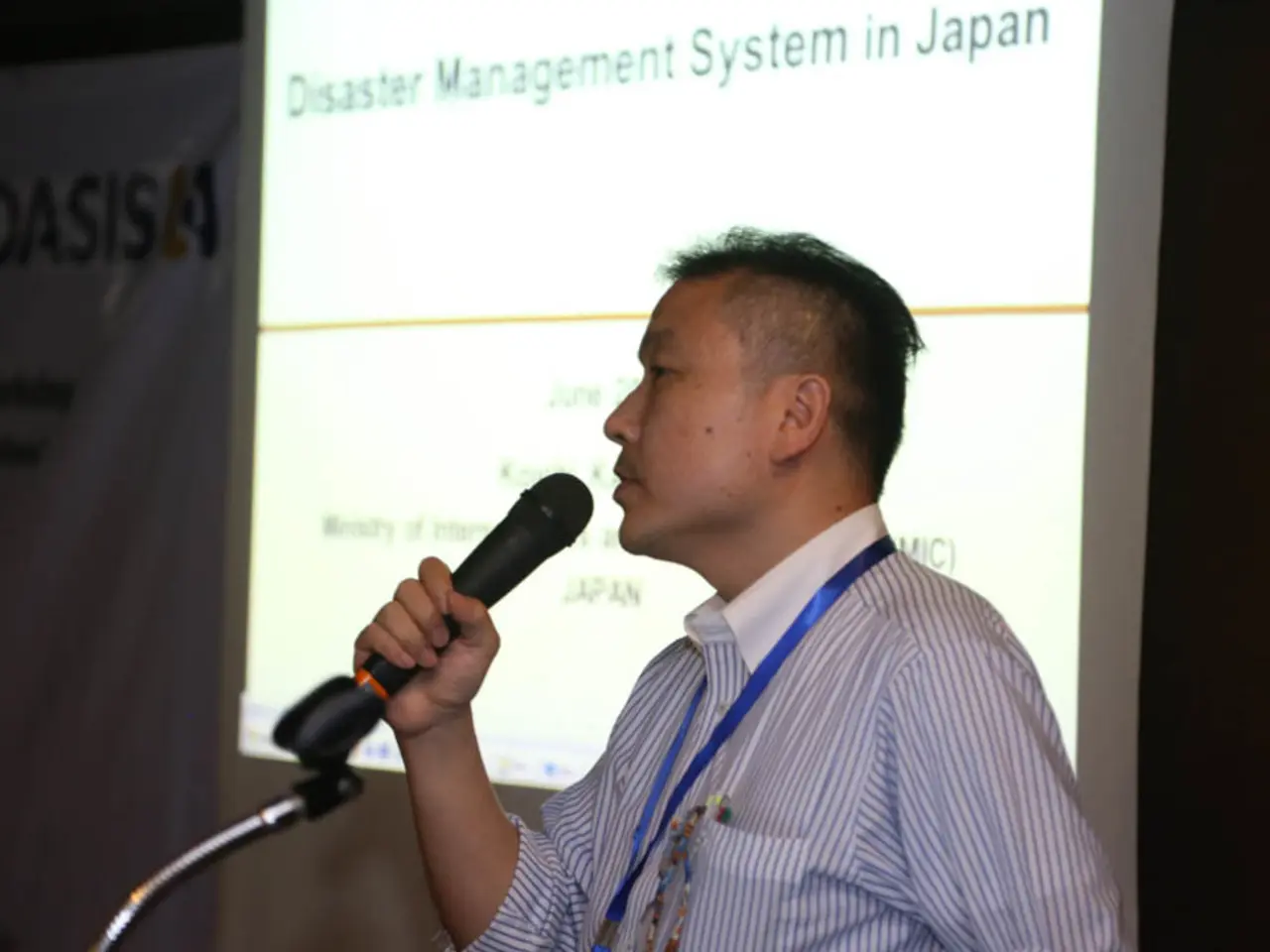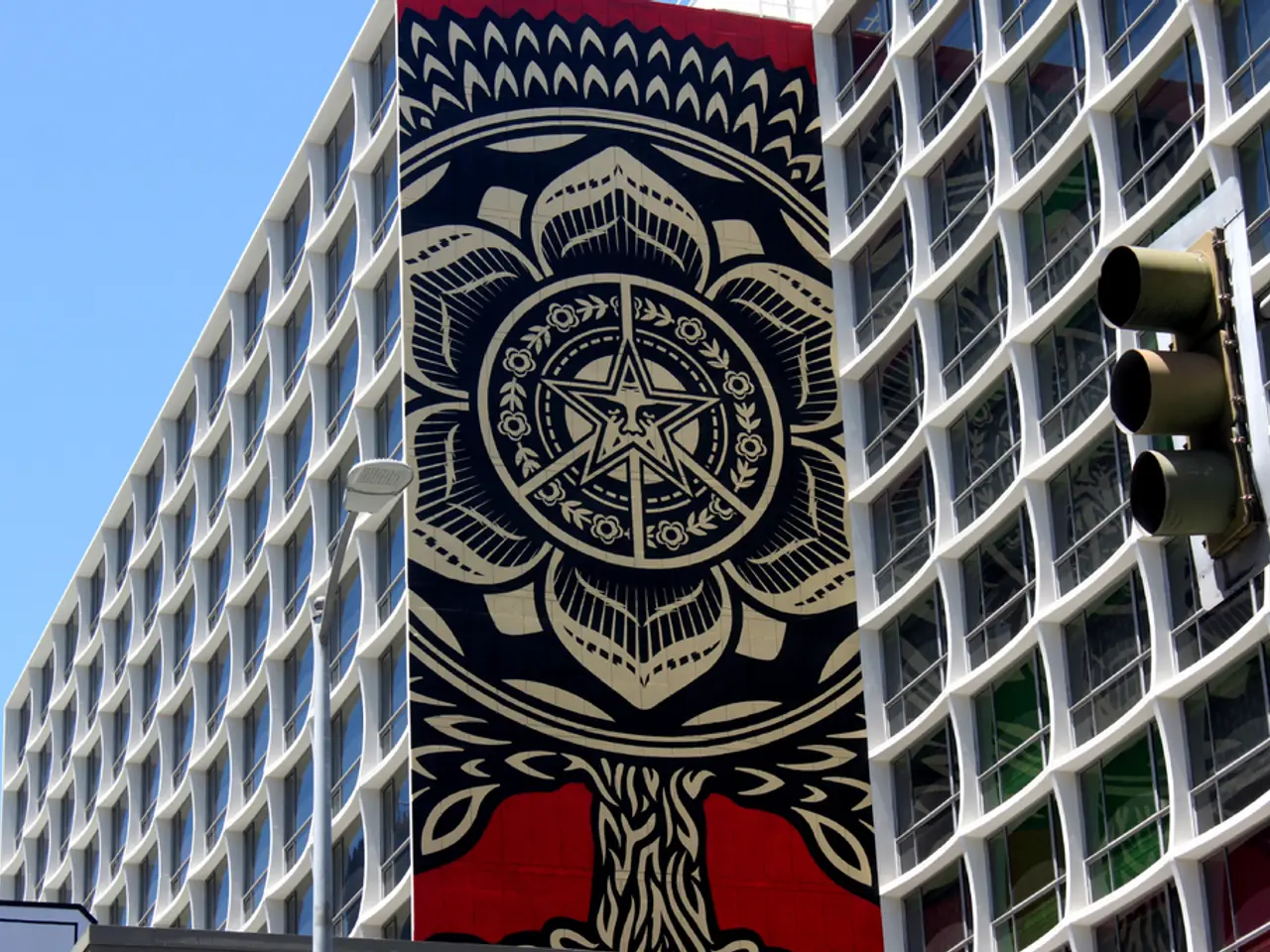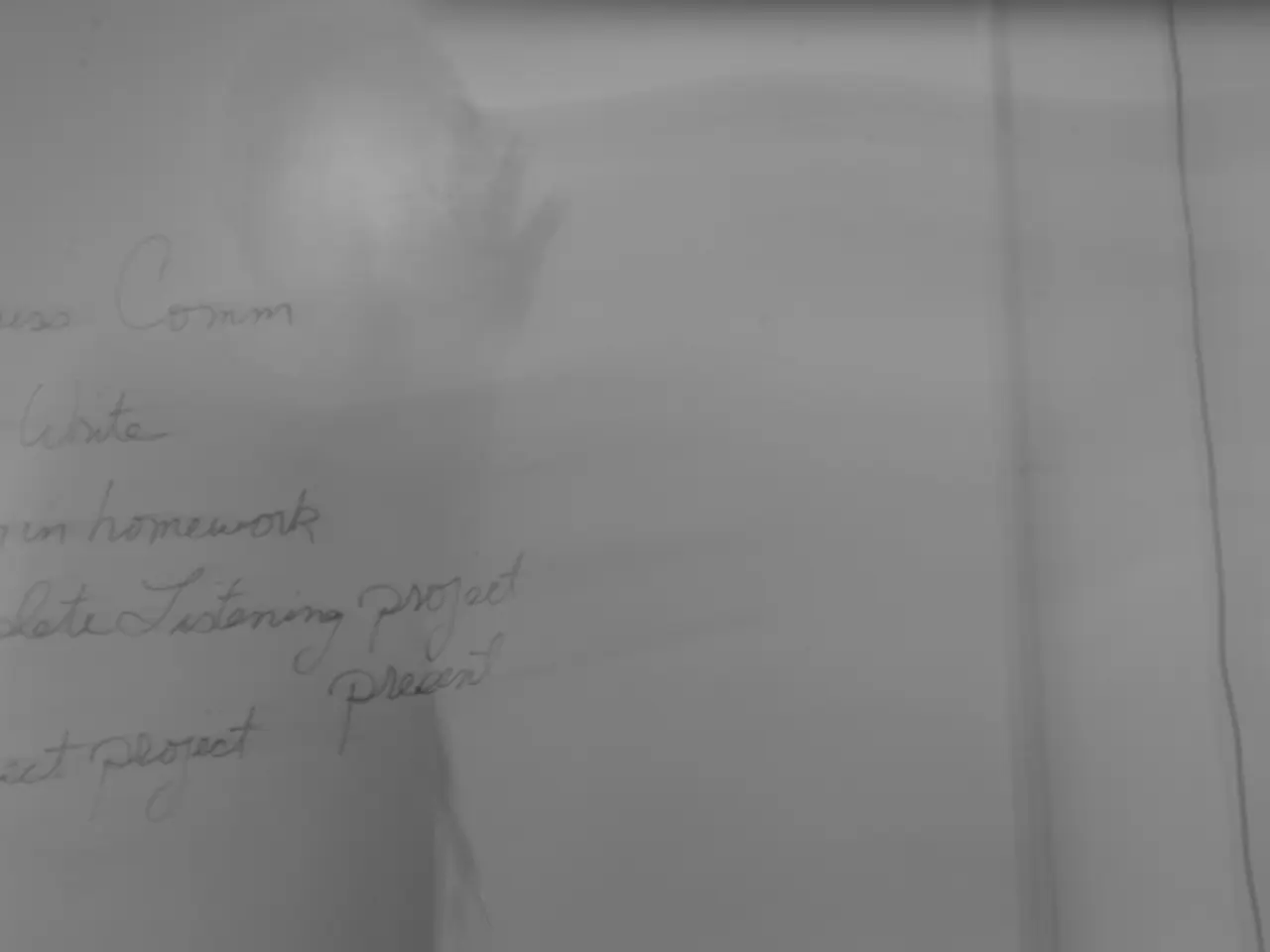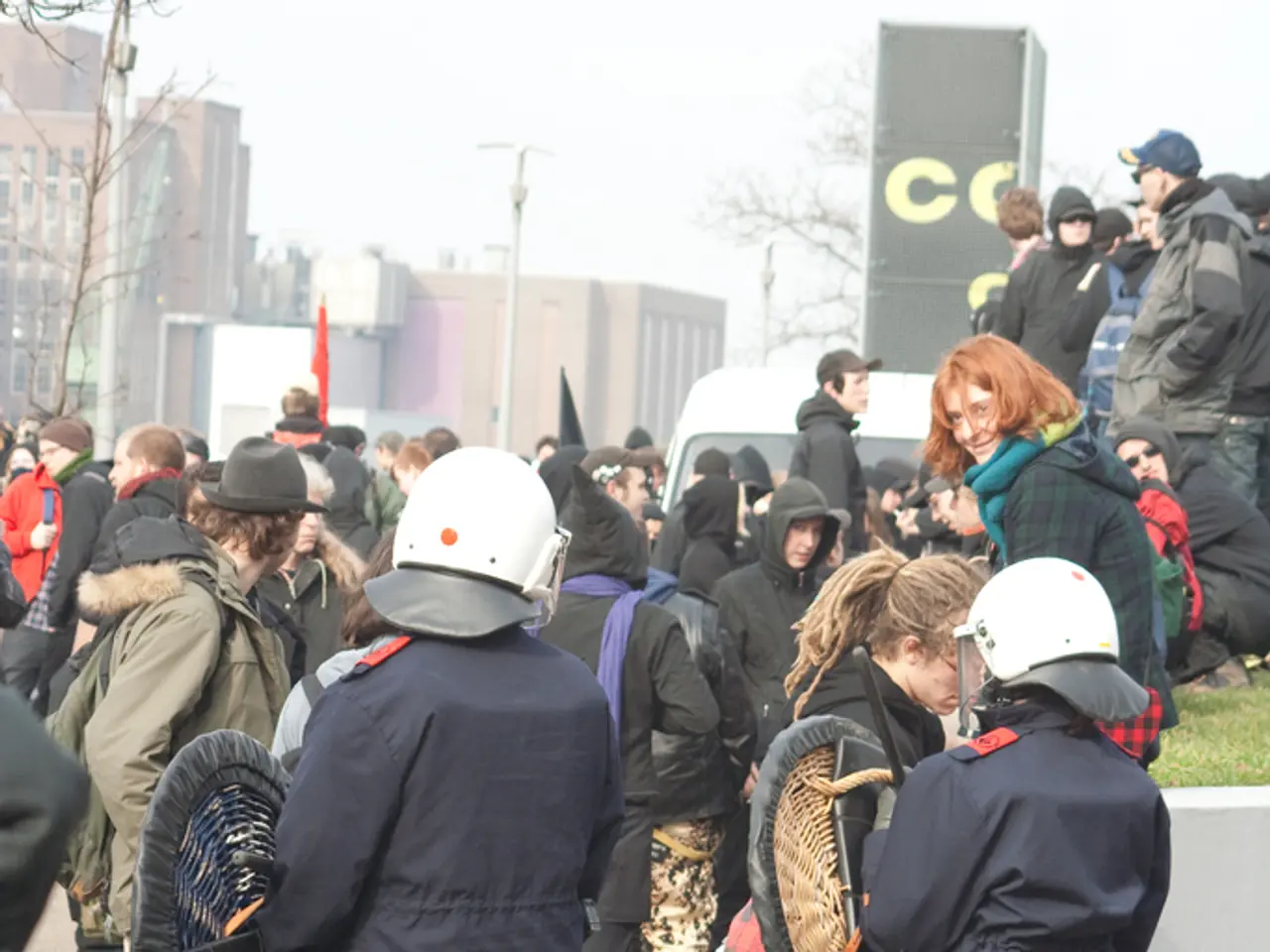Ahead of the upcoming elections: what are the objectives of the Union, SPD, Greens, and FDP?
In the upcoming German federal election on February 23, 2022, the four major parties—Union (CDU/CSU), SPD, Greens, and FDP—are set to present their distinct platforms on taxes, social policies, economy, migration, Ukraine/Russia, and armed forces.
The Union, led by Chancellor-elect Friedrich Merz, is advocating for moderate tax policies that balance economic growth with fiscal responsibility. The party favors business-friendly taxation and cautious fiscal policies, aiming to appeal to "hard workers." Additionally, the Union is focused on a controlled migration policy, emphasizing integration but also stricter border controls in response to the rise of the Alternative for Germany (AfD). In terms of armed forces, the Union is promoting military modernization and increased defense spending, with a focus on NATO commitments and Germany's security role.
The SPD, led by Olaf Scholz, is traditionally supportive of progressive taxation with enhanced social spending. However, the party has faced criticism due to economic stagnation. Despite historically poor results, the SPD remains a significant force in the coalition government. The SPD is committed to supplying weapons to the country attacked by Russia with restraint and discretion. The party also supports strengthening armed forces while balancing social priorities, continuing military support for Ukraine. On migration, the SPD supports comprehensive migrant integration, refugee protection, and labor market inclusion, but internal controversies have impacted votes.
The Greens, led by Robert Habeck, advocate for green taxes and reforms to fund climate protection alongside social equality measures. They promote a higher basic allowance, with no income tax due up to at least 1,000 euros. The Greens are generally pro-immigration and multiculturalism, promoting human rights and protective policies for refugees and asylum seekers. They also support making voluntary military service and the reserve more attractive to a broad target group.
The FDP, led by Christian Lindner, supports tax cuts, especially for businesses and high earners, to stimulate economic growth and innovation. The FDP wants to make the Bundeswehr the strongest conventional military force in Europe and backs immediate delivery of the Taurus cruise missile to Ukraine for self-defense. The party favors regulated migration focusing on skilled labor, emphasizing economic benefits and integration support.
In terms of pension policies, the SPD and Greens aim to fix the pension level at 48%, while the FDP calls for a "truly flexible retirement age" and reintroduces proposals for an "individual stock pension" and an "Altersvorsorgedepot for private retirement provision."
As the election approaches, the SPD, Greens, and the FDP have different proposals for investments on the balance of payments, while the Union and FDP want to stick to it. The SPD and Greens want to raise the minimum wage to 15 euros, with the SPD aiming for 2026 and the Greens for a year earlier. The SPD supports rapid and consistent deportations, but prefers voluntary return of migrants without residence rights. The Greens advocate for a fair, binding, and solidarity-based distribution of asylum seekers in Europe.
The CDU/CSU aims to halt illegal migration and implement swift asylum procedures. The party also aims to gradually lower the income tax tariff, with the top tax rate of 42% applying only to higher incomes. The Union, along with the SPD and Greens, emphasizes that a peace process must be led by Ukraine on an equal footing.
As the election unfolds, the candidates for Chancellor—Robert Habeck (Green Party), Friedrich Merz (CDU), and Olaf Scholz (SPD)—are accompanied by other top politicians. The parties' platforms reflect the complexities of modern German politics, with each offering unique perspectives on the country's future.
- The Union, while focusing on moderate tax policies and business-friendly taxation, also advocates for a controlled migration policy involving stricter border controls amid the rise of the Alternative for Germany (AfD).
- The Greens, led by Robert Habeck, support comprehensive migrant integration, refugee protection, and labor market inclusion, and are generally pro-immigration and multiculturalism.
- The FDP, along with its focus on tax cuts, especially for businesses and high earners, also favors regulated migration focusing on skilled labor, emphasizing economic benefits and integration support.
